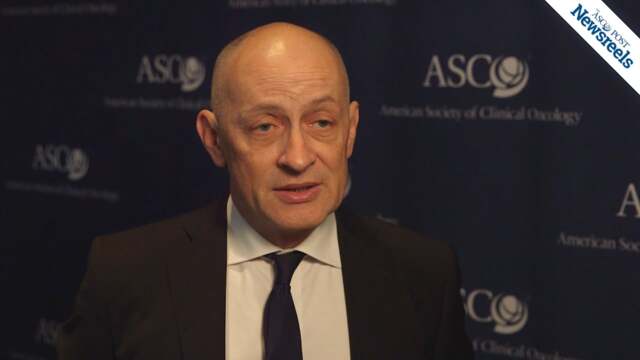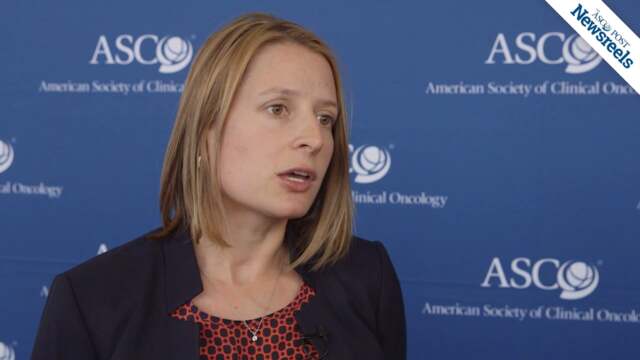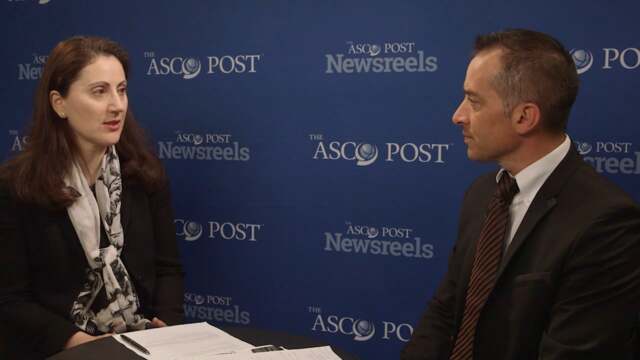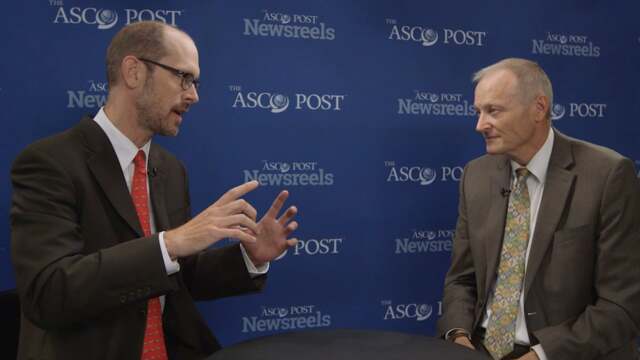Julie Lemieux, MD, on Letrozole in Postmenopausal Early-Stage Breast Cancer: Patient-Reported Outcomes (French Language) 
2016 ASCO Annual Meeting
Julie Lemieux, MD, of Centre Hospitalier Universitaire de Québec, discusses in French patient-reported outcomes from a study extending adjuvant letrozole for 5 years after completing an initial 5 years of aromatase inhibitor therapy alone or preceded by tamoxifen (Abstract LBA506).

To see the English language version of this video, please
click here.
Antonio Palumbo, MD, of the University of Torino, discusses this phase III study of daratumumab, bortezomib, and dexamethasone versus bortezomib and dexamethasone in patients with relapsed or refractory multiple myeloma (Abstract LBA4).
Maria Clemence Schwaederle, PharmD, of the University of California, San Diego, discusses an analysis of 13,203 patients in phase I clinical trials, which showed that a personalized strategy led to improved response rate and progression-free survival (Abstract 11520).
Vali A. Papadimitrakopoulou, MD, of MD Anderson Cancer Center, and Fabrice Denis, MD, PhD, of the Institut Inter-regional de Cancérologie Jean Bernard, discuss findings from a phase III trial on an app used between visits for early detection of symptomatic relapse and complications in high-risk lung cancer patients (Abstract LBA9006). To see Dr. Denis discuss this study in French, click here.
 To see the French language version of this discussion, click here.
To see the French language version of this discussion, click here.
Helen MacKay, MD, of the Sunnybrook Odette Cancer Centre, discusses findings from this phase II study of intraperitoneal vs intravenous chemotherapy following neoadjuvant chemotherapy and optimal debulking surgery in patients with epithelial ovarian cancer (Abstract LBA5503).
Michael J. Overman, MD, of the University of Texas MD Anderson Cancer Center, and John Marshall, MD, of Georgetown University Lombardi Comprehensive Cancer Center, discuss interim findings on nivolumab with or without ipilimumab in the treatment of patients with metastatic colorectal cancer with and without high microsatellite instability (Abstract 3501).






